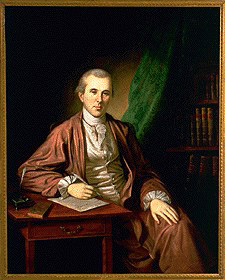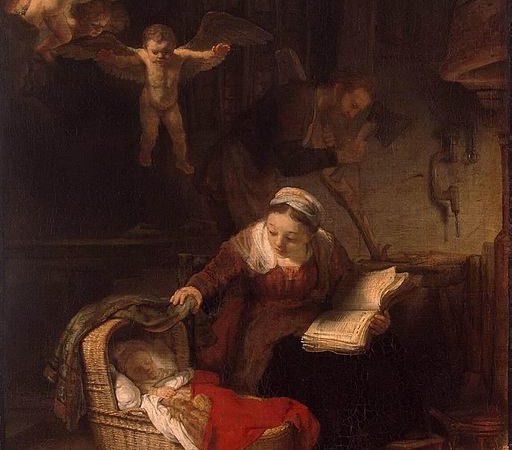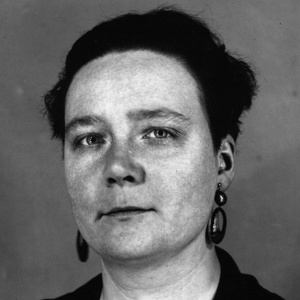The Holy Family with Angels, Rembrandt van Rijn, 1646
All the great Protestant reformers of the sixteenth century—Luther, Calvin, Knox, Zwingli, Sturm, Farel, Beza, and Melanchthon—were aggressive education champions committed to Bible-centered Christian instruction and discipleship. They understood that long-term church reform required educational reform at all levels. Given their limited resources, their achievements were remarkable. Martin Luther, the young German monk who ignited the Reformation in 1517, laid the foundation for renovating the church’s educational system. He was a strong advocate of Christian schools and Bible-centered learning. Luther promoted Christian education, not to gain church attendance or material wealth, but for the purpose of preserving the integrity of the gospel of Christ. He warned us in the sixteenth century,
Above all, in schools of all kinds the chief and most common lesson should be in the Scriptures. … I am afraid that the universities will prove to be the great gates of hell unless they diligently labor in explaining the Holy Scriptures, engraving them in the hearts of youth. I advise no one to place his child where the Scriptures do not reign paramount. Every institution in which men are not increasingly occupied with the Word of God must become corrupt.[1]
John Calvin and John Knox were the foremost leaders of the second generation of evangelical Protestant reformers. Their influence, particularly Calvin’s, exceeded that of Luther. Both visionaries wrote educational plans—Calvin’s was a city-wide system for Geneva and Knox’s was a national system for his beloved Scotland.
 Early American education bears the undeniable imprint of the Bible-centric educational philosophy of Calvin and Knox. Dr. Benjamin Rush, physician, co-founder of five colleges, signer of the Declaration of Independence, and founder of the Bible Society was the first American founding father to propose free public schools. He thought children should actually read the Bible for themselves, not just have it read to them. He petitioned society that the Bible should be the primary textbook taught in public schools in his publication entitled, A Defense of the Use of the Bible as a School Book (1791):[2]
Early American education bears the undeniable imprint of the Bible-centric educational philosophy of Calvin and Knox. Dr. Benjamin Rush, physician, co-founder of five colleges, signer of the Declaration of Independence, and founder of the Bible Society was the first American founding father to propose free public schools. He thought children should actually read the Bible for themselves, not just have it read to them. He petitioned society that the Bible should be the primary textbook taught in public schools in his publication entitled, A Defense of the Use of the Bible as a School Book (1791):[2]
Before I state my arguments in favor of teaching children to read by means of the Bible, I shall assume the following propositions: First, that Christianity is the only true and perfect religion, and that in proportion as mankind adopts its principles and obeys its precepts, they will be wise and happy; Second, that a better knowledge of this religion is to be acquired by reading the Bible than in any other way; Finally, that the Bible contains more knowledge necessary to man in his present state than any other book in the world. … I believe no man was ever early instructed in the truths of the Bible without having been made wiser or better by the early operation of these impressions upon his mind.
Writing is essential to education
Today, many young Christians sit passively in front of computers filling in endless worksheets or drawing lines to the matching answers from curricula written by secular humanists. They have not plumbed the riches of the classics with a master teacher nor been taught the skills of composition and rhetoric. It is writing that produces thinkers! With a bankrupt vocabulary and no understanding of God’s hand in the history of Western Civilization, communication for the twenty-first century student has been reduced to tweets, emojis, and selfies!
Webster’s 1828 Dictionary, which contains biblical meanings of words, defines “education” as follows:
noun, [Latin: educatio, to lead out of.] The bringing up, as of a child, instruction; formation of manners. Education comprehends all that series of instruction and discipline which is intended to enlighten the understanding, correct the temper, and form the manners and habits of youth, and fit them for usefulness in their future stations. To give children a good education in manners, arts and science, is important; to give them a religious education is indispensable; and an immense responsibility rests on parents and guardians who neglect these duties.
Second Timothy 3:16-17 inspired this definition, which includes not only instruction but also discipline. It contains four active verbs indicating that education is not meant to be the passive institution it has become in the last 100 years. With the onset of the information era, education has been reduced to memorizing facts (not truths) in order to pass the next test. This process bypasses the spirit of the mind, and information is soon forgotten. Students are left with a recognition mentality of subject content, not a mastery of the subject’s principles as in the colonial era. English apologist Dorothy Sayers wrote in her essay, The Lost Tools of Learning, “although we often succeed in teaching our pupils ‘subjects,’ we fail lamentably on the whole in teaching them how to think: they learn everything, except the art of learning.”
Education as God intended is teaching and learning. Teaching and learning, first and foremost, is a relationship. It is the heart-to-heart and mind-to-mind relationship between the teacher and the student that fosters both internal and eternal consequences. Children need teachers, not computers, masters of disciplines, not self-directed workbooks. The goal of Christian education is not the impartation of facts, but changed lives! When the imagination is inspired by truth and beauty and the mind is actively engaged in thinking and reasoning that conforms to the Word of God, the Holy Spirit enlightens the student’s understanding and he joyfully learns for himself. “There is a spirit in man, and the inspiration of the Almighty gives the understanding” (Job 32:8).
Only education that honors God will build a nation
Dr. Rush made a bold claim in his essay: “teaching the Bible in schools would in the course of two generations, eradicate infidelity among us and render civil government scarcely necessary in our country.”[3] My study of this essay years ago is what prompted me to design an enrichment program to restore to youth the lost virtues of beauty, truth, and moral goodness. This program nurtures children by reading aloud the great children’s classics, by giving them a taste of Christian history, by cultivating Christian imagination through the arts, and by providing them a Bible to read for themselves. Every lesson is built on a biblical principle, and the children are guided to reason with and rightly apply truth to their own lives.[4] Hearts and minds are inspired and the joy of learning is once again ignited. Christian imagination is cultivated to dream God-sized dreams and to wonder at His glorious creation and His overruling hand in their lives and nations. In the words of twentieth century Christian educator, Dr. Mark Fakkema:
To educate the children of today is to construct the foundation of the nation tomorrow. Faithless teaching makes for unfaithful citizens. … We are in need of a nationwide education that honors God and teaches study content in the light of God’s Word.[5]
The decay of America’s culture cries out for the Church to repent of her complacency and impart God’s mandate for generational duty—the obligation of this generation as guardians and stewards of the nation to form the future leadership, and indeed the future, through Christ-centered education.
- Elizabeth Youmans
[1] d’Aubigne, M. (1846). History of the Reformation in the Sixteenth Century. Baker Book House, p. 190.
[2] The complete essay can be found online at: http://deila.dickinson.edu/cdm/fullbrowser/collection/ownwords/id/17784/rv/compoundobject/cpd/19843
[3] Ibid.
[4] This curriculum is available in four languages on the AMO® Program website http://amoprogram.com
[5] Slater, R. (1965). Teaching and Learning America’s Christian History: The Principle Approach. Foundation for American Christian Education, p. xix.








1 Comment
Chris McReynolds
June 30, 2017 - 4:25 pmWe use Dr. Youman’s AMO® Program in Mexico with great results. Parents and teachers express how excited their children are to attend classes and how engaged they are in the literature, Bible, art and history lessons.